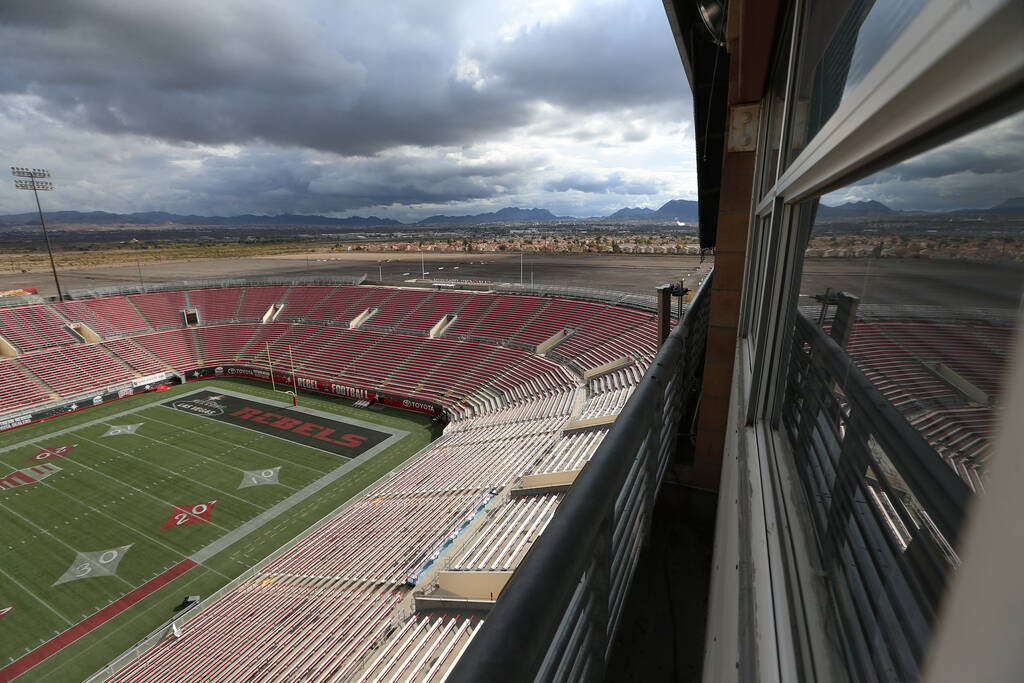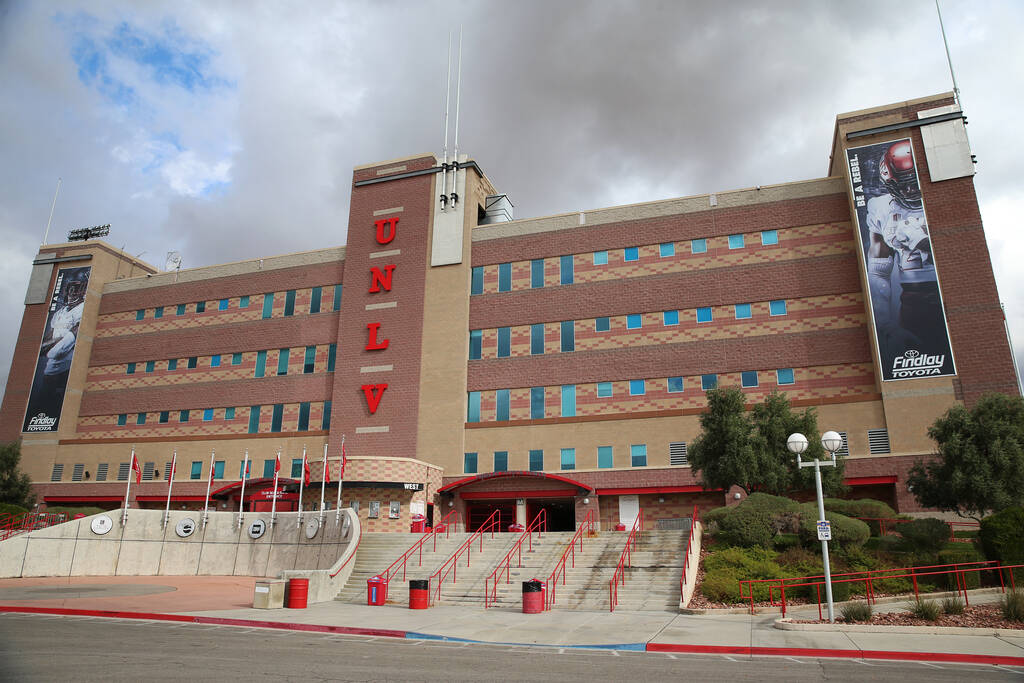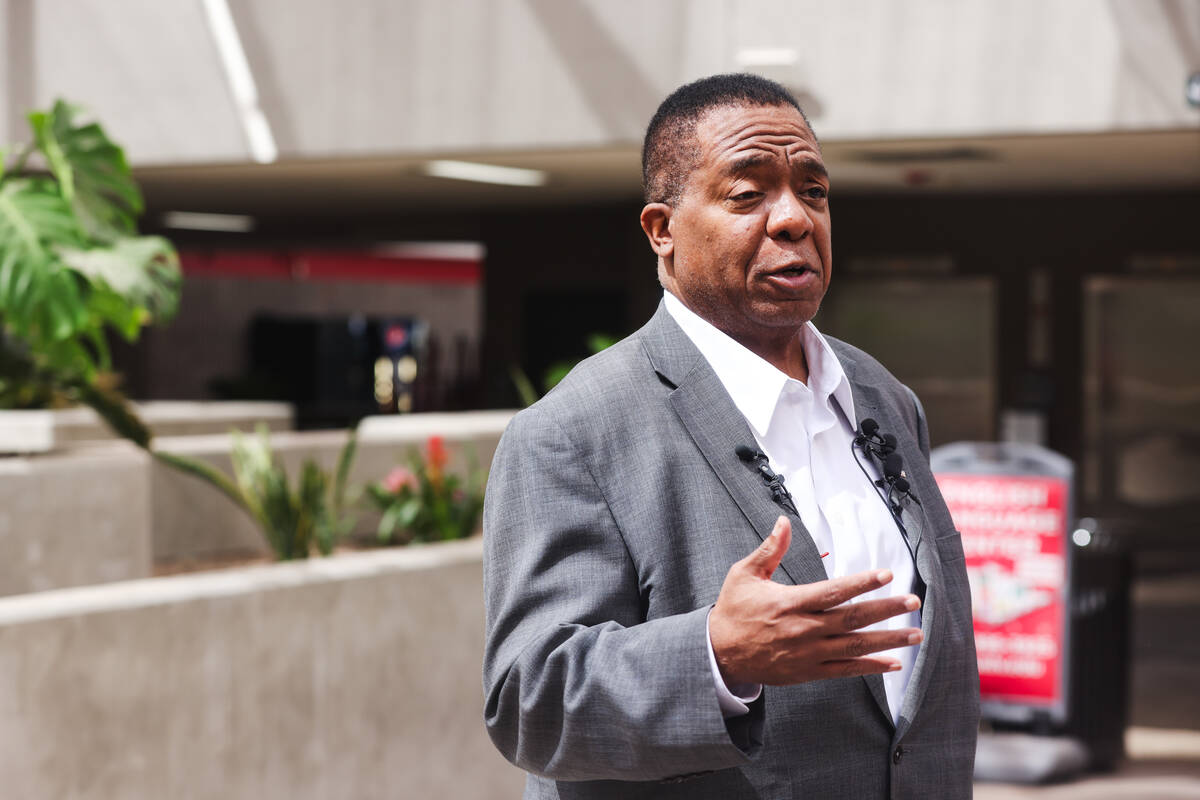UNLV: Sam Boyd Stadium copper theft, homeless problem factors as sale to county looms
UNLV says it’s time to sell Sam Boyd Stadium, as it has become a burden to upkeep, with the closed facility targeted by copper wire thieves and the homeless.
Speaking Friday to the Nevada Board of Regents, UNLV President Keith Whitfield said maintaining and securing the stadium has become a problem since the Rebel football team stopped playing there in 2019 after their move to Allegiant Stadium in 2020.
“One of the first things that we experienced was … multiple visits by some bad doers to take the copper,” Whitfield said Friday during a Board of Regents meeting in Carson City. “More recently, and I think this has been a bigger issue in the valley due to the extreme heat, it has made that one of the places some of the homeless people actually go to. We are having to provide additional security to be able to make sure there is nothing that is going on.”
The meeting item was for informational purposes only and the matter will have to be heard again at a future board meeting for a potential vote on the transaction.
Ensuring incidents don’t happen within the stadium that would leave UNLV liable for damage or injury is a big driver of the added security at Sam Boyd Stadium, Whitfield said.
“It’s a losing proposition,” Whitfield said.
‘Good opportunity’
Under the joint use agreement with the Raiders for Allegiant Stadium, the Rebels are no longer permitted to use Sam Boyd Stadium for events.
“It’s an extremely good opportunity for us, because we can’t use it,” Whitfield said. “We did use it one time since 2019, which was for a graduation. There was some concern that we weren’t supposed to use it, even for that.”
The university hopes to sell the aging facility, which sits on 69 acres, to Clark County for $5 million. In 1971 Clark County gained ownership of Sam Boyd Stadium from the Bureau of Land Management, and UNLV played there as a tenant. The county transferred ownership in 1985 to UNLV for free.
UNLV and Clark County carried out separate independent appraisals of the land with UNLV’s coming in at just over $10 million and Clark County’s being $0. The county’s came in at $0 largely due to the deed on the land, which is surrounded by BLM land, requiring it be used for public purposes. That limits the amount of potential suitors who might be able to purchase the land, Whitfield noted. With UNLV being a prior owner of the site, they are one of few that would be able to acquire it.
The suggested $5 million sale price is the two sides meeting in the middle.
UNLV reported that they are spending $500,000 annually on the upkeep of the stadium, including beefing up security to patrol the site. The cost of upkeep was factored into the potential $5 million the county would pay UNLV.
“We have characterized that payment (to UNLV) not as a purchase, we characterize it as a consideration for this transaction, coming from the reimbursement of maintenance expenses that have been forwarded by UNLV over the course of time,” Clark County Commissioner Jim Gibson said during the meeting.
Possible future development
Clark County Manager Kevin Schiller said they would consider infrastructure needs for possible future development on the site, including water reclamation. The county is not currently considering repurposing the stadium for events, he said.
That previous zero-cost deal when the county transferred the land to UNLV and the county and UNLV working together on other land deals and infrastructure projects is why the two sides hope the Board of Regents approves the sale at a future meeting.
“It has been an important part of my service to work collaboratively with the university in an effort to overcome a number of challenges we’ve had in the past,” Gibson said.
If the deal is approved UNLV plans to use the $5 million toward a wide variety of uses.
“Including improving campus infrastructure and enhancing student support services,” Whitfield said. “This aligns with strategic goals of increasing access, closing the achievement gap, and supporting workforce development and research.”
Contact Mick Akers at makers@reviewjournal.com or 702-387-2920. Follow @mickakers on X.

























